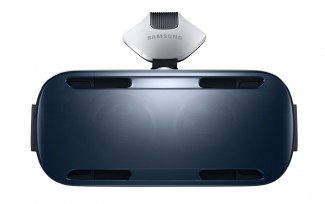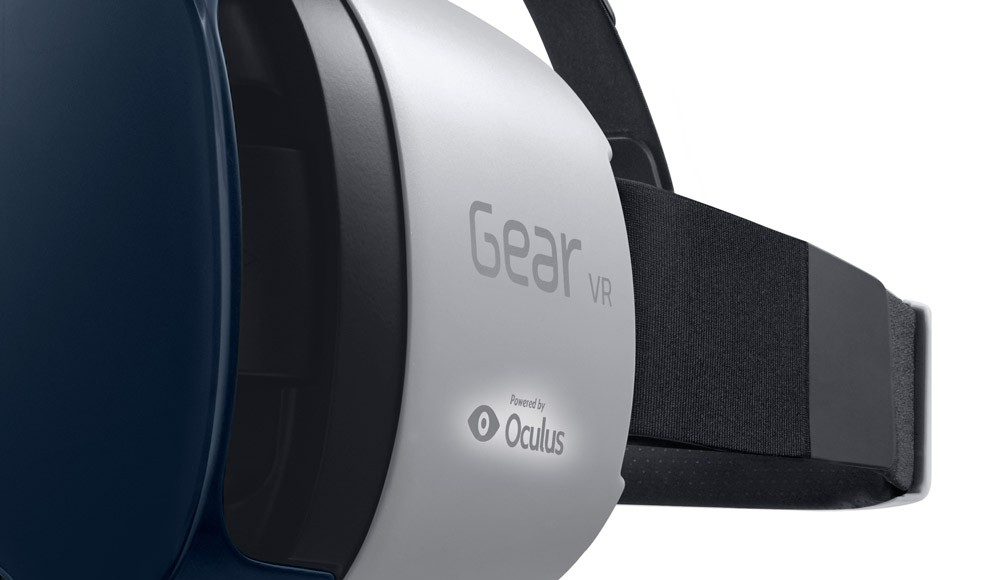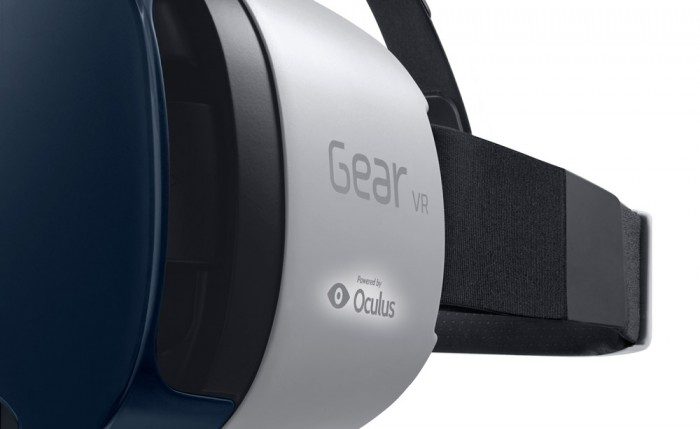Following the Samsung Gear VR announcement and the official reveal of the “deep and integrated partnership” with Oculus, the company’s CEO, Brendan Iribe, confirms that Gear VR is but one of many ‘Powered by Oculus’ devices to come.

Yesterday’s announcement of Gear VR revealed ‘Powered by Oculus’ branding on the Samsung-made mobile VR headset.
‘Powered by Oculus’ means a few things for Gear VR; for one, a variation of the Oculus Tracker is built into the headset (not into the Galaxy Note 4, as previously reported). It also speaks to the software architecture that the company designed to enable a high quality VR experience that slices through many barriers that are inherent in the existing Android OS hardware/software stack. On top of this, Gear VR will use Oculus Home, a piece of software that will launch and manage VR apps on the device.
In an interview with TechCrunch, Oculus CEO Brendan Iribe says that Gear VR is just the beginning of VR devices that will be ‘Powered by Oculus’.
“This is something that is not ready for mass market consumers, but it will be soon, and as it is, and as it rolls out, you’ll start to see more devices powered by Oculus over the next few years,” he said. “A decade from now, or even less than a decade – five, seven or eight years from now, I think you’ll see a lot of devices powered by Oculus available across both mobile and PC.”
 “Neither Iribe nor Cohen would comment on any discussions with smartphone OEMs beyond Samsung, saying they’re currently “laser-focused on Samsung,” but Iribe did concede that he believes mobile manufactures competing with the Korean company will at least want what Gear VR offers once they see how well it performs,” continues the interview.
“Neither Iribe nor Cohen would comment on any discussions with smartphone OEMs beyond Samsung, saying they’re currently “laser-focused on Samsung,” but Iribe did concede that he believes mobile manufactures competing with the Korean company will at least want what Gear VR offers once they see how well it performs,” continues the interview.
Iribe goes on to talk a bit about how the Samsung-Oculus relationship came to be.
“When we met with [Samsung,] they said ‘Actually, we’re happy to support VR in your products with screen technology, but we also think there’s an opportunity on mobile,’ and they brought the first prototype [of Gear VR] to the table,” Iribe recounted. “They said they’d been working on it a while, and we asked how long, and they said ‘Oh a few months,’ so it was when we made all this noise worldwide at CES that they decided to get involved.”
Work on mobile VR also played a role in John Carmack’s decision to join Oculus as CTO.

“We showed it to John Carmack, and he got super excited and said basically ‘I think there’s real potential here and I’d like to dedicate my next few years to making this a reality because I really believe in the whole mobile VR untethered world,’” Iribe told TechCrunch.
It was clearly heard yesterday in Carmack’s voice how excited he was about being able to finally talk about Gear VR after the work that he and the mobile team at Oculus had put into the project.
“I’m really excited to finally be able to talk about this, it’s been a secret project for too long. So I’ve dedicated the last year of my life to making the best mobile VR system possible and I’m really proud of what we’ve been able to accomplish so far,” Carmack said on stage during the Samsung Gear VR announcement.
You can watch and read the rest of Carmack’s Gear VR presentation here.








